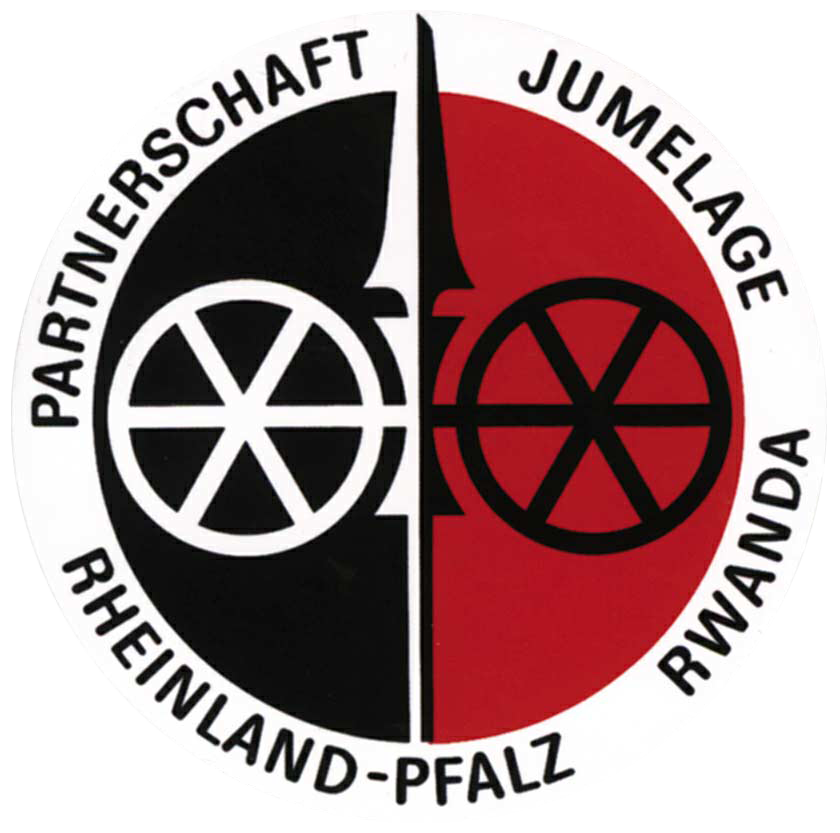Christine Müller
Founder of the association ‘Partnership Rwanda Alzey-Worms’

Christine Müller has been involved in the partnership between Rhineland-Palatinate and Rwanda for 21 years and is still very active at the age of 70. She first travelled to the Rhineland-Palatinate partner country in 2000 and has been positively infected with the Rwanda virus ever since. As a member of the state parliament at the time, she travelled to Rwanda with an official delegation in 2000. After being inspired by the country, the ‘Rwanda Alzey-Worms Partnership’ support association was founded in 2001 on her initiative.
How did you come to start volunteering for Rwanda in particular?
In 2000, I travelled to Rwanda for the first time with an official delegation as a member of the state parliament at the time. Like many members of parliament, I had already been involved with our partner country Rwanda. Especially after the terrible genocide, we talked a lot about it and also made donations. But this first visit made me see this country with completely different eyes and I realised very quickly that I had to get involved in the future.
You have often used the phrase that you have been infected with the ‘Rwanda virus’ in a positive sense - what exactly do you mean by that, what makes Rwanda so special for you?
I was impressed by the kindness of the people and felt a deep connection to the country and its people. The word Rwanda virus comes from the former Minister of the Interior, Walter Zuber. After my return from Rwanda, I asked him if he would support me in my endeavours to found an association in the district. Of course he agreed and was delighted that I had also caught the ‘Rwanda virus’.
Where do you draw your strength, stamina and motivation to keep going? Because not everything has always gone smoothly over the years.
Of course, not everything has gone smoothly, but there have never been any major disappointments and things have almost always turned out positively. In 2005, for example, I found the cistern we had built at a school empty despite the rainy season. The headmaster told me that they had no hemp to seal the tap and no one to do it. That was reason enough for me to get together with the parents present and we set up a sort of ‘parents’ council’ to look after the upkeep of the school. When I came back two years later, I was first taken to the functioning cistern. That was the reason why parents were recruited to work with us at all the schools we look after.
Alzey/Worms has a partner region in Rwanda, how was this region chosen and can you speak of a happy partnership over the last 20 years?
There had already been twinning relationships through the Minister of the Interior Zuber and the city of Alzey, but no official partnership with this region. This has of course developed positively thanks to the founding of the association and intensive support.
Is there a particular thematic focus in your partner region on which your association concentrates and which is reflected in the projects?
Yes, the topic of education for children and young people in Rwanda has been our focus from the very beginning and has also proved its worth. I campaign in our local schools not only for financial support, but also for mutual understanding of the different cultures.
How did you come to be committed to the needs of people with disabilities?
I had accompanied a delegation from Rwanda who look after disabled people in their country and spontaneously accepted the invitation to visit a disabled facility during my next visit to Rwanda. This resulted in a partnership with the Ineza Kabaya centre for the disabled and the Löwenschule support centre in Alzey. My husband and I also got a personal sponsored child, little Japhet, who we support privately together with his parents so that he can now even attend a normal school.
What projects have you been able to initiate in this area since then? Have you noticed an improvement in the situation and perception of people with disabilities in society in RWA over the years?
As a local organisation, we are working at full capacity with the Ineza project. But I have already noticed that awareness in Rwanda for people in Rwanda is being positively supported. We have also supported the training of staff at the centre. More needs to be done here.
To what extent can you see that the general living conditions for people in your partner region have changed over the past 20 years as a result of your involvement? What factors other than your involvement have contributed to this?
Our partner region is a long way from Kigali and is one of the poorest in Rwanda. Of course there have been improvements here too. But they are modest compared to the area surrounding the capital. This is where our work comes in. We have just built a power supply for a partner school, which also benefits the people in the region. What good is it for the children if they are to be made fit for the internet, but there is no electricity or no affordable electricity?
The partnership is celebrating its 40th anniversary in 2022 and wants to be well positioned for the future. Where do you see challenges, especially in RLP?
Yes, if I had a solution, I would be happy and maybe get a prize. Society is changing, many young people are switching from long-term commitment to project-based commitment, which affects not only our associations, but all association work.
What do you wish the partnership on its anniversary?
That the association will continue to exist for a long time to come with a complementary and different focus, such as more support for initiatives and associations.
 Partnerschaftsverein Rheinland-Pfalz/Ruanda e.V.
Partnerschaftsverein Rheinland-Pfalz/Ruanda e.V.